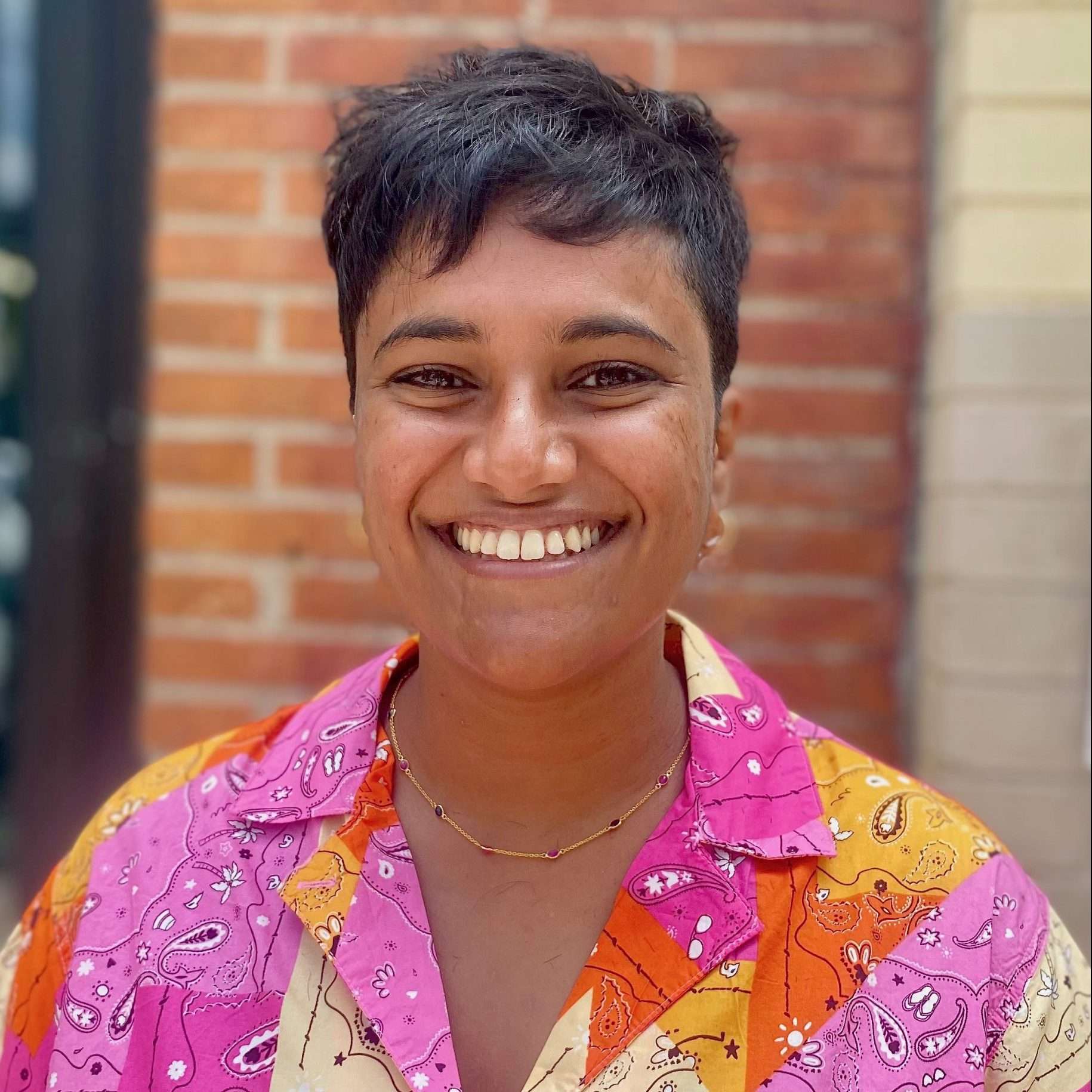
Meet Sarah
spallivalapilkarerat@therapycenterofphila.org
My identities as a queer, genderfluid, South Asian (Indian Muslim) immigrant are inextricable from my therapeutic approach, rooted in decolonization and anti-oppressive practice. I believe that our experiences are shaped by more than just the interpersonal; they are produced by larger sociopolitical and historical contexts. My background lies in working with survivors of partner abuse who have experienced a non-consensual pattern of power and control. This framework of power and control shapes how I understand each of us navigating colonialism, capitalism, patriarchy, and white supremacy, particularly when we hold marginalized identities.
Just as harm occurs in the context of relationships, I believe that healing too can only happen in relationships. I strive for genuine connection in my work, having divested from the notion that the therapist is the expert. I’m interested in exploring with you what care looks like in community with one another, prioritizing collaboration and non-judgment.
Therapeutically, I believe that it is equally important to understand how we came to experience the world as we do (insight) as it is to address the impacts on our body through the mind-body connection (experiential/somatic). My practice engages:
- Psychodynamic theory, an approach that explores the impact of our personal and cultural histories.
- EMDR (Eye Movement Desensitization and Reprocessing), a technique that addresses traumatic memories and their effects.
- Attachment theory, a focus on how our relationships from early childhood influence our relationships today.
I also pull from Internal Family Systems (IFS) or parts work, and somatic therapy which engages our bodies.
I center survivors of partner violence, queer and trans people, people of color, and immigrants in my work, and look forward to creating a therapeutic space together with abundant room for vulnerability, healing, and joy.